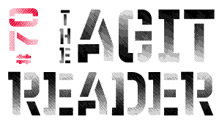
The Best of the Black President
Knitting Factory
The legacy of Fela Anikulapo-Kuti is a unique one. For those familiar with the man’s music and his decades-long struggle against tyranny in his homeland of Nigeria, his importance as both a musician and political figure cannot be overstated. I mean, this is the man who created Afro-beat, irrevocably changing the projectory of African music for evermore. The music Fela left behind is like a bottomless well to which one can eternally return, forever finding more nuance and meaning amongst the dense grooves.
But for the vast majority of the Western listening population, Fela is mostly unknown, even despite collaborating with the likes of Cream drummer Ginger Baker. It is the equivalent of Bob Marley being familiar only to reggae aficionados, or Caetano Veloso being heard only by Brazilian ears. He hasn’t received the post-mortem renaissance afforded Marley, even while his sons, Femi and Seun, have kept his name alive without tarnishing it (unlike Marley’s heirs).
But Kuti’s name may soon become more familiar to a wider audience. In conjunction with the Bill T. Jones–directed musical Fela! premiering on Broadway, Knitting Factory Records is set to embark on the most ambitious reissue program of the Fela catalog, re-releasing all 45 of Kuti’s albums on both vinyl and digi-packed CD. This will also mark the first official release of the output of Fela’s first band, Koola Lobitos.
Leading off the Knitting Factory series, is an introduction of sorts, The Best of the Black President. The set’s two CDs survey the prime of Fela’s career, from 1972 to 1989. (Fela’s once prolific recording schedule slowed in the ’90s as he suffered from health problems related to the beatings he received from the Nigerian police over the years as well as illness related to AIDS, which he had contracted and which would lead to his death.) While essentially a re-release of the 2000 collection The Best Best of Fela Kuti (right down to the liner notes), which spearheaded MCA’s own Fela reissue program earlier in the decade, with a DVD added in, there’s worse ways to start the series.
In fact, there’s probably no better way for a new listener to be introduced to Fela’s music. Beginning with “Lady,” Kuti’s 1972 satire of Westernized African women set to a 13-minute horn-laden groove, the 13 cuts here offer a stellar cross-section of the man’s best and best known material. “Water No Get Enemy,” a track from 1975 edited down here to “only” 10 minutes, shows off Fela’s sax work amongst big, chant-like choruses. And no Fela best-of would be complete without “Zombie,” his biggest hit in his homeland, and “Shuffering and Smiling,” both harsh critiques of the political and religious regimes in place in Nigeria.
The DVD addition may be introductory as well, but not without purpose. Hosted by Sahr Ngaujah, who is playing Fela in the Broadway production, the program gives a brief overview of Kuti’s biography, interjecting footage from the French documentary Music Is a Weapon, a BBC broadcast of Fela and Egypt ’80 playing at the Glastonbury Festival in 1984, and film of another performance at the Berlin Jazz Festival. It also includes commentary from Bill T. Jones and Kuti biographer Carlos Moore on the Fela! musical and their hopes that it will spark new interest in this man.
I can’t help but hope that whatever the means, more will hear the forthcoming, re-released records (which we’ll no doubt be sharing our thoughts on as well), as the more one listens to Fela’s music and learns about his life—flaws and all—the more clearly his uniqueness shines. It has been easy for cynics to discount music as have any social impact these days (and, in most cases, they are probably right), but nearly up until the time of his death in 1997, Fela was feared for what he was saying in his songs and at his concerts, so much so that his house was attacked by nearly 1,000 policemen. If only the Nigerian government had had the good sense to put differences aside and get into the groove.
Stephen Slaybaugh
PAST PERFECTS
Gary Higgins, Seconds
Where the Action Is! Los Angeles Nuggets 1965-1968
Big Star, Keep an Eye on the Sky
Sunny Day Real Estate, Diary and LP2
The Feelies, Crazy Rhythms and The Good Earth
Thrasher Magazine's Skate Rock Volume 1
39 Clocks, Pain It Dark
The Stone Roses, The Stone Roses
The Jayhawks, Music from the North Country
Ze 30: Ze Records 1979–2009
24-Carat Black, Gone: The Promises of Yesterday
Beastie Boys, Ill Communication
Book of Love, Book of Love, Lullaby, Candy Carol and Love Bubble
The Scene Is Now, Total Jive
